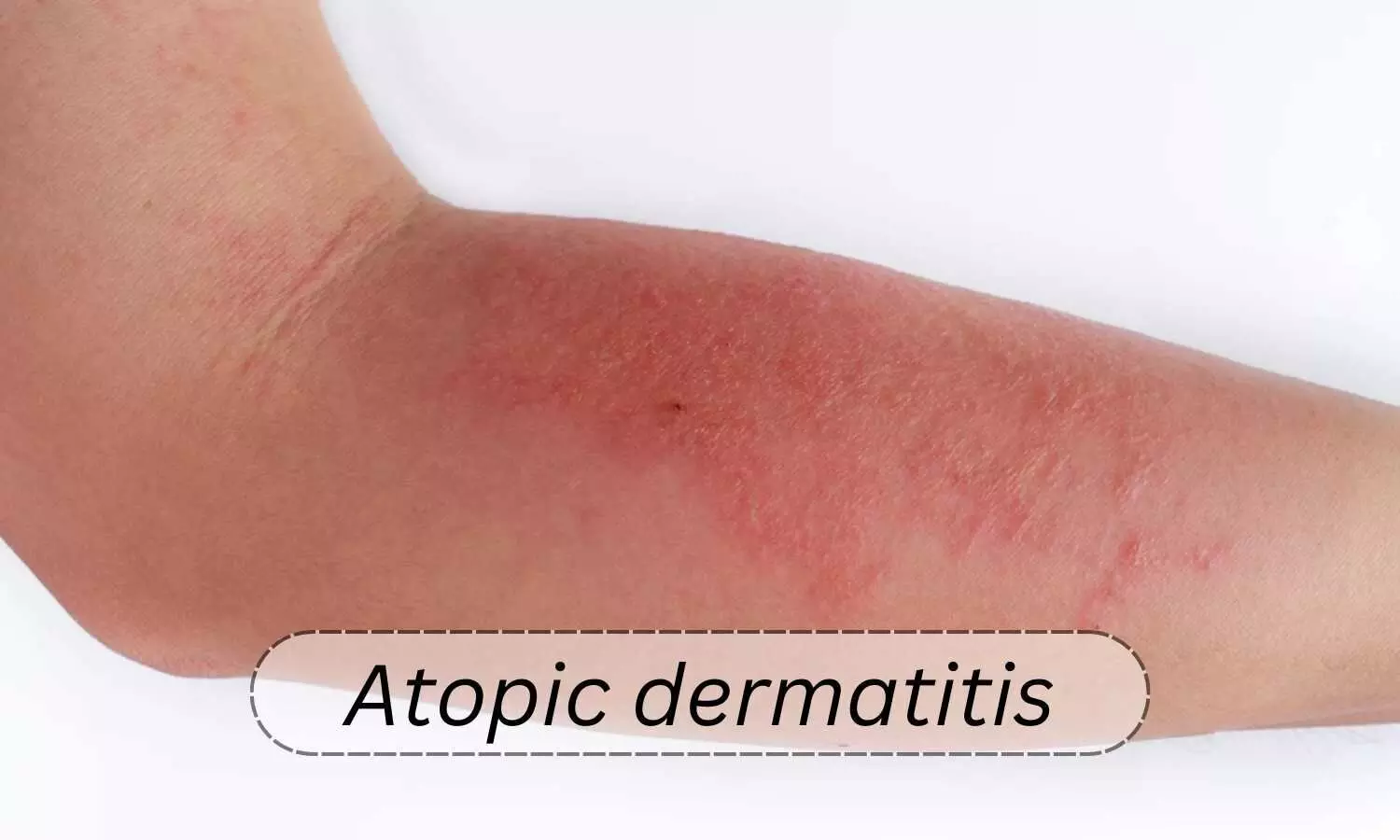Dupilumab treatment may improve work productivity in patients with atopic dermatitis: Study

Japan: A recent study published in Experimental Dermatology has shed light on the impact of 1-year treatment with dupilumab on work productivity in Japanese patients with atopic dermatitis (AD).
The researchers showed that Dupilumab improved work productivity in Japanese patients with atopic dermatitis. They stated that long-term remission of pruritus and improved quality of life (QoL) are important for comprehensive improvement of work productivity.
Atopic dermatitis (also called eczema) is a chronic (long-lasting) disease that causes redness, inflammation, and irritation of the skin. The condition places a burden on work productivity. Recently, dupilumab received approval for atopic dermatitis, but its impact on work productivity in Japanese patients has not been reported. Furthermore, data is limited on the effect of long-term treatment with dupilumab on work productivity.
To fill this knowledge gap, Masahiro Kamata, Department of Dermatology, Teikyo University School of Medicine, Tokyo, Japan, and colleagues investigated the activity and work productivity in Japanese patients with moderate-to-severe atopic dermatitis, utilizing the Japanese version of the Work Productivity and Activity Impairment (WPAI-AD-Japan) questionnaire. Further, they also examined the impact of dupilumab on work productivity.
The study included adult moderate-to-severe AD patients treated with dupilumab for more than 12 months from 2020 to 2022 who filled out the WPAI-AD-Japan questionnaire. Twenty-eight adult AD patients were analysed.
The study led to the following findings:
- Absenteeism was low (mean: 5.3%), but presenteeism, work productivity loss and activity impairment were high (36.8%, 39.7%, and 48.9%, respectively).
- Significant positive correlations were observed between work productivity loss and visual analogue scale (VAS) score of pruritus and between activity impairment and dermatology life quality index (DLQI).
- Dupilumab treatment significantly reduced presenteeism, work productivity loss and activity impairment at 6 and 12 months.
- The extent of their amelioration was numerically higher at 12 months than at six months.
- The reduction rates in presenteeism, activity impairment, and work productivity loss were positively correlated with the reduction rates in DLQI and VAS score of pruritus at 12 months.
The findings showed that in Japanese AD patients, dupilumab improved work productivity.
"Long-term remission of pruritus and improved quality of life are important for comprehensive improvement of work productivity," the researchers wrote.
Reference:
Sakurai, E., Kamata, M., Uchida, H., Okada, Y., Suzuki, S., Takeshima, R., Ito, M., Watanabe, A., Mizukawa, I., Egawa, S., Chijiwa, C., Hiura, A., Fukaya, S., Hayashi, K., Fukuyasu, A., Tanaka, T., Ishikawa, T., & Tada, Y. (2024). Impact of 1-year treatment with dupilumab on work productivity in Japanese patients with atopic dermatitis. Experimental Dermatology, 33(2), e15022. https://ift.tt/rvHObli
from Medical News, Health News Latest, Medical News Today - Medical Dialogues | https://ift.tt/f4acVU6
Comments
Post a Comment